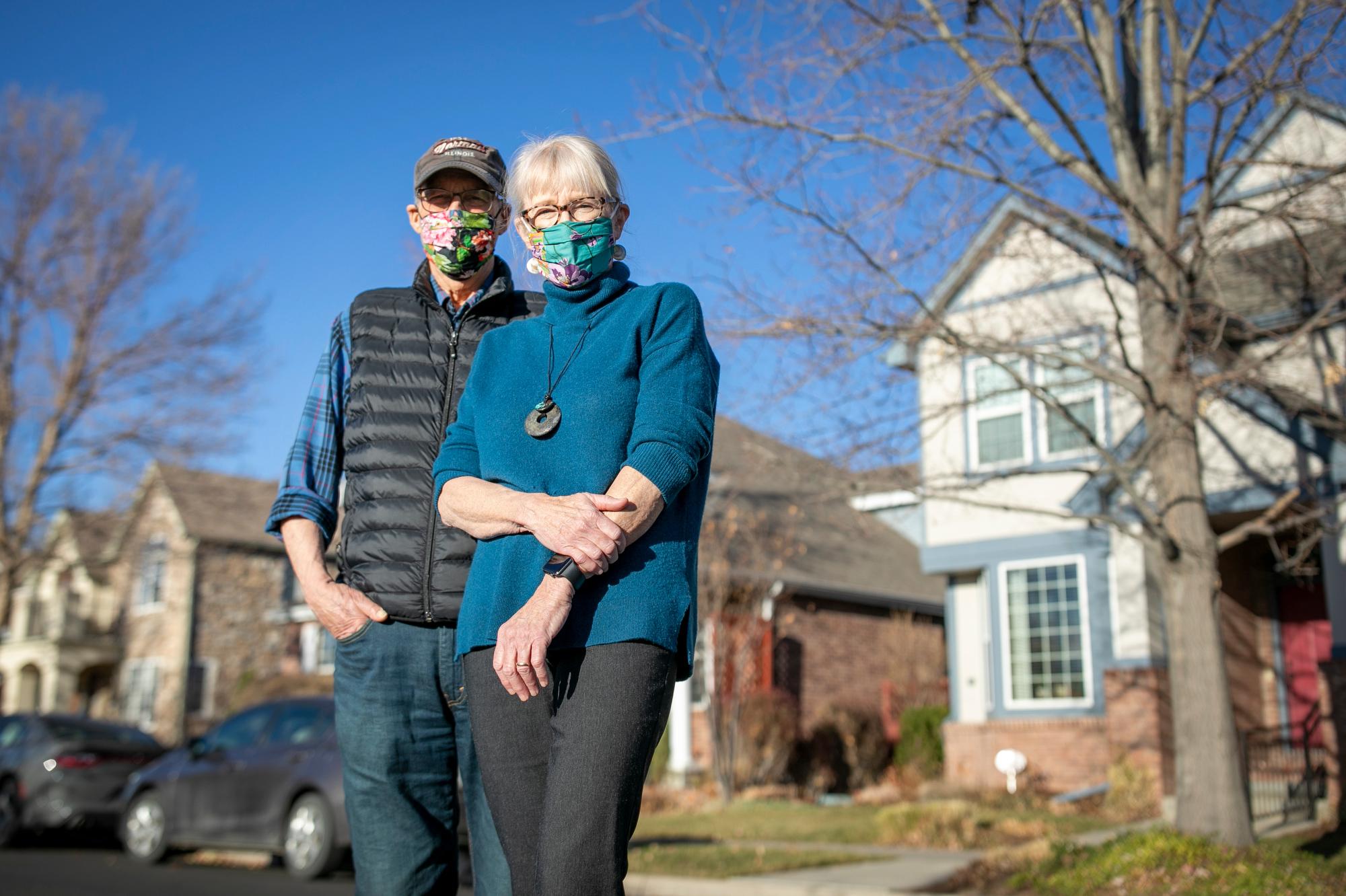
Christine O’Connor and her husband are still making their turkey. She’s still also putting together all the usual fixings. Her daughters are even contributing their own additions to the feast.
But, instead of getting all of her family together to celebrate Thanksgiving, O’Connor and her family are listening to pleas from local and national officials to celebrate separately from the family they don’t live with because of COVID-19.
“Usually, we're in Atlanta with grandkids and one of our daughters' families. So we won't be doing that,” she said O’Connor, of east Denver.
This holiday season will look like none other in memory because of the coronavirus. That much is clear. When else have national officials called for travelers to call off their plans or for families to stay apart? Across the state, all Coloradans are facing these decisions and asking themselves tough questions: Do they stay or go? Risk a small gathering or keep the turkey dinner to one household?
“We'll just exchange the food on the porch,” O'Connor said. “I'll leave a box on the porch and one daughter will pick it up and then drop off things she’s delivering to us.”
Earlier in the pandemic, there was some hope that slowing transmission of the virus might leave some room for people to engage in the usual holiday gatherings. But as cases of COVID-19 rose nationally and in Colorado, those hopes quickly faded.
Last week, Governor Jared Polis asked Coloradans to stay at home with their immediate family for the holidays to slow the spread of the coronavirus. The CDC said people should not travel for Thanksgiving.
“My family is just having Thanksgiving with my partner and our kids,” Polis said at a news conference last week. “As much as we'd love to see my brother and sister and Marlon's sister and dad and my parents as we normally do. It's even more important to us to make sure that they're there for many years to come, and I know that that's the case for your family as well.”
But some Coloradans, like Greg Krush in Hotchkiss, are going ahead with their original holiday plans anyway, despite the warnings from health officials.
“I'm a farmer and live in a rural area and pretty isolated anyway, so I don't see much change there,” he said. “I would say, some of my family, they're nervous. I don't feel anybody in my family is paranoid about it. It's a fact of life, and it's out there, and you take precautions if you choose. And if you don't want to take precautions, you don't.”
Other families are taking a hybrid approach, cautiously proceeding with some holiday festivities. Samantha Koch, a former candidate for the Colorado General Assembly, said she is still planning on visiting her family — but with some extra precautions.
“We're going to be visiting with my parents, and they are older and they do fall in that high-risk category,” she said. “We've kind of been limiting going out and being around a lot of other people just to keep that risk down — making sure that we don't have high temperatures or have any of the known symptoms of COVID and making sure that before we leave, that we have all of these things in check and that my parents are still comfortable with it.”
Even locally, many officials, like Pueblo Mayor Nick Gradisar, are warning against any plans to visit friends or family members outside your household. Instead, Gradisar suggests creating new holiday traditions.
“Because of where the infection rate is at in the community, we're not going to be able to have those extended gatherings that all of us look forward to and all of us enjoy,” he said. “Usually on Christmas Eve, I've got 40 or 50 people at my house and Santa Claus comes for the little kids and the grandkids. But this year, it's gotta be different. We can't have all those households intermingling because we don't know who's got the virus.”
It’s a sentiment shared by Dr. Glenn Most, executive director at West Pines Behavioral Health in Wheat Ridge, who said he's also scaled back his Thanksgiving plans.
“We've had this tradition probably the last seven or eight years of getting together with family and friends, and we share the responsibilities at each other's house every year,” he said. “Our friends told us, about a month ago, that they were going to bow out. We've just decided that we're not going to invite anybody else into the house. I'm looking forward to spending Thanksgiving with my wife and my kids. It'll be different than years before, but that doesn't mean it can't be a good positive experience for us.”
Many people interviewed for this story acknowledged that the holidays can already be a particularly tough time of year for people emotionally. Throw in the pandemic, and things can feel really isolating.
“I anticipate that people are going to need to find ways to be flexible and to adapt this year in ways that they haven't had to in the past and find different ways to celebrate the holidays,” Most said.
He also suggested that if someone finds themselves struggling, to check out the resources available at a mental health initiative he has worked on, Let’s Talk Colorado.
“People are going to have to find other ways to connect because ultimately we need to stay connected to each other," he said.
Coloradans like O’Connor are finding and maintaining those connections even if Thanksgiving is going to look different this year.
“Sharing food on Thanksgiving seems to me to be the primary way I can connect,” she said. “We're also going to do a family Zoom call. People are in one, two, three, three different time zones. So that's going to be a little tricky. So, that's the best we can do. I think everybody will at least feel connected.”









